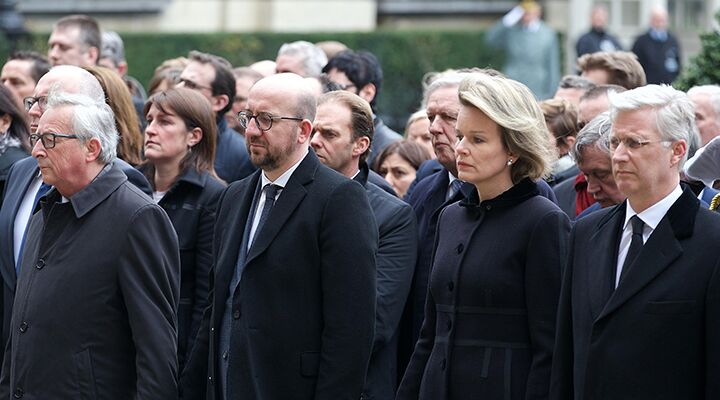
Defeating the Islamic State ‘Bully’
If the Islamic State was a schoolyard bully, United States President Barack Obama’s response would be textbook.
The president avoided confronting the bully after the Paris attacks last November. He ignored the group’s growing strength and channeled his attention to the “greatest” global threat: climate change. He said this would serve as a “powerful rebuke” to terrorists.
When the Brussels bombings occurred last week, the president took 51 seconds out of his Cuba speech to address it. Bear in mind, Brussels is the headquarters of nato, the military alliance headed by the United States. It is also the headquarters of one of our biggest allies the European Union.
Later in the week, the president traveled to Argentina. There he laid out his strategy to combat the bully: “We defeat them in part by saying, you are not strong; you are weak.”
The playground tactic is to avoid confrontation and appear unperturbed. In so doing, the aggressor supposedly believes his actions are futile and eventually gives up. President Obama wholeheartedly subscribes to this approach in his foreign policy.
But the bully analogy only goes so far. When a scratch becomes a shooting in San Bernardino, when elbows to the side are bombs exploding in an airport and on the metro in Brussels, and when a punch in the face is a calculated assault to inflict mass casualties in Paris, the Islamic State terrorist group can no longer be treated as just some schoolyard bully.
The Islamic State is not a bully—it is a highly organized terrorist organization capable of inspiring attacks far beyond its territory. The most distinguishing difference is that the Islamic State isn’t acting out because of a misunderstanding or an inferiority complex. It has a goal: Wage war against the West and implement a global caliphate.
The United States’ only physical response—limited airstrikes—is equivalent to a pinch on the arm. Mr. Obama actually prefers a different approach anyway. In a brief address this weekend, he unveiled a new weapon: “The power of our example.”
President Obama has gotten away with such statements only because America is not the nation currently being punched in the face.
Since Sept. 11, 2001, terrorist attacks have killed 45 people in the United States. In Europe, that total is 520.
While on his trip to Argentina last week, President Obama said the Islamic State is “not an existential threat to us.” While he may be right, the comment still raised eyebrows. Particularly his use of the word “us.” Remember, two days before, the Islamic State claimed responsibility for the bombings in Brussels.
Mr. Obama’s response reveals America’s weakness, but most importantly, it sends a message to Europe that it’s on its own.
Europe is realizing this. After the Brussels attacks last week, the Trumpet wrote that “Europe is being left with little choice but to act. The Brussels attack was a direct assault on the EU. … Some Europeans realize that Islamic terrorism has to be stopped overseas at the source.”
If Europe wants to stop getting attacked, it can’t keep following America’s example. It will need to stand up to the terrorist group. Prophecy says that is exactly what will happen.
Read our article “Belgium Attacked—Europe ‘Under Attack’” to understand more about how Europe will respond to the threat posed by radical Islam.
